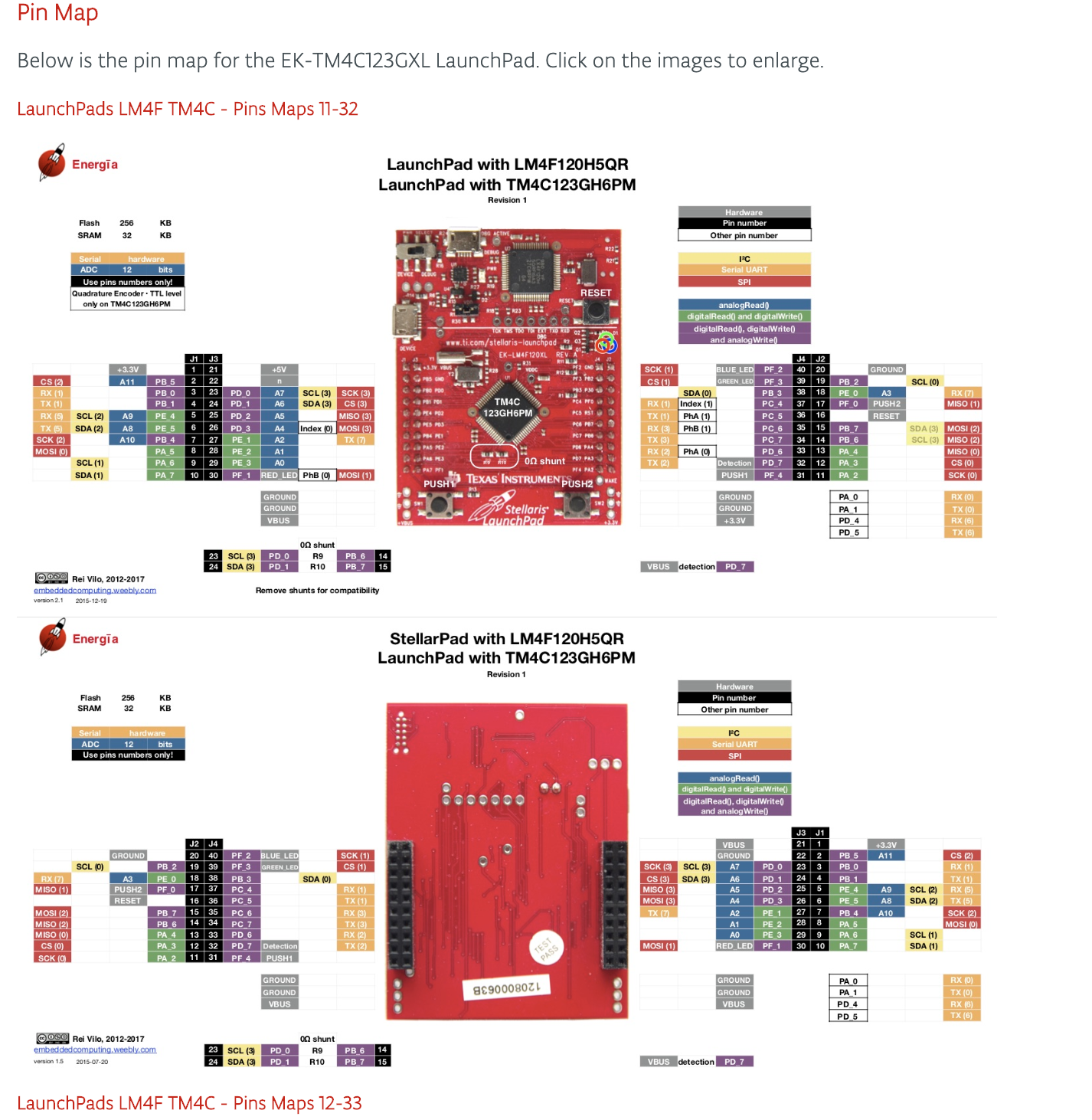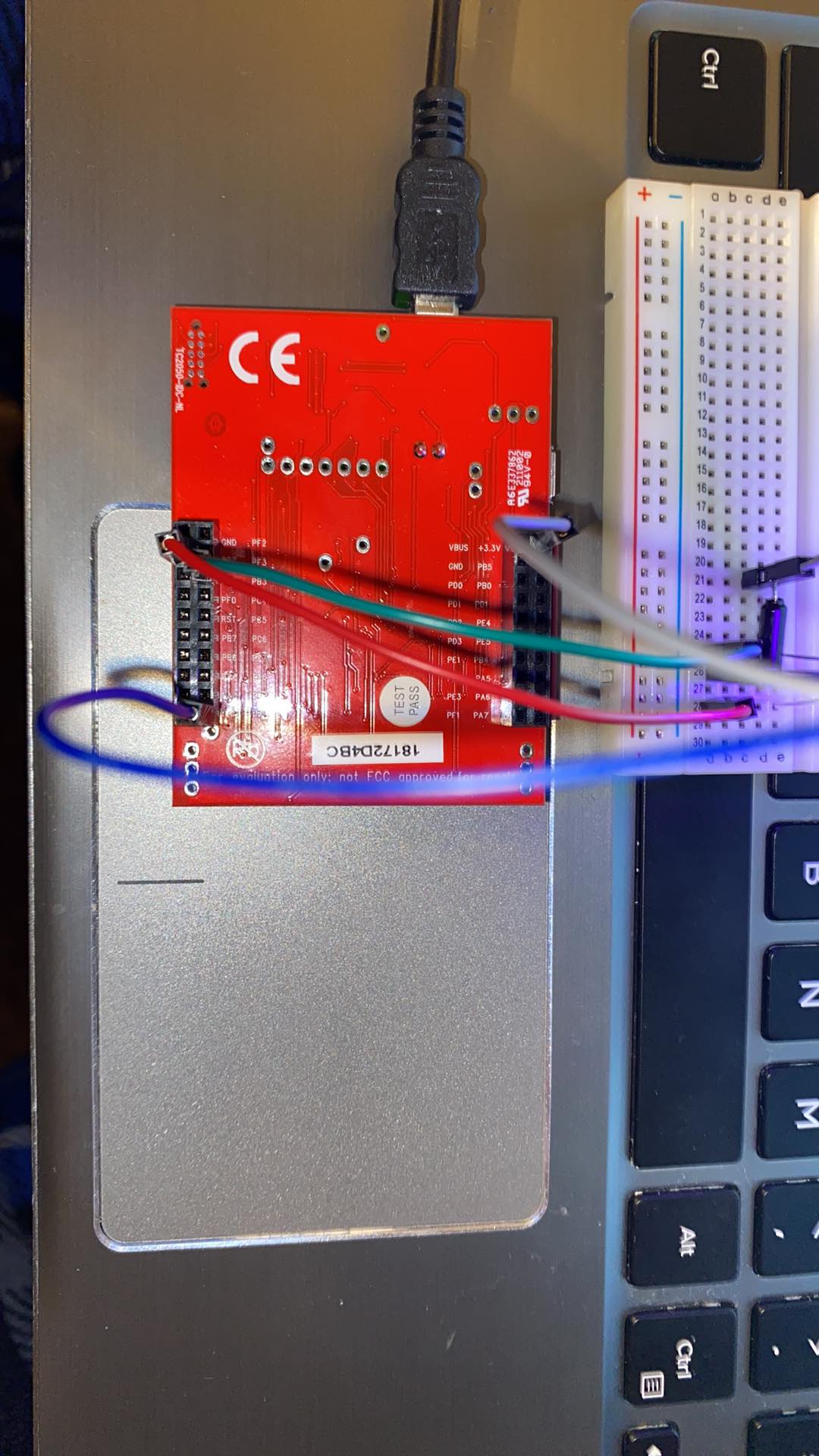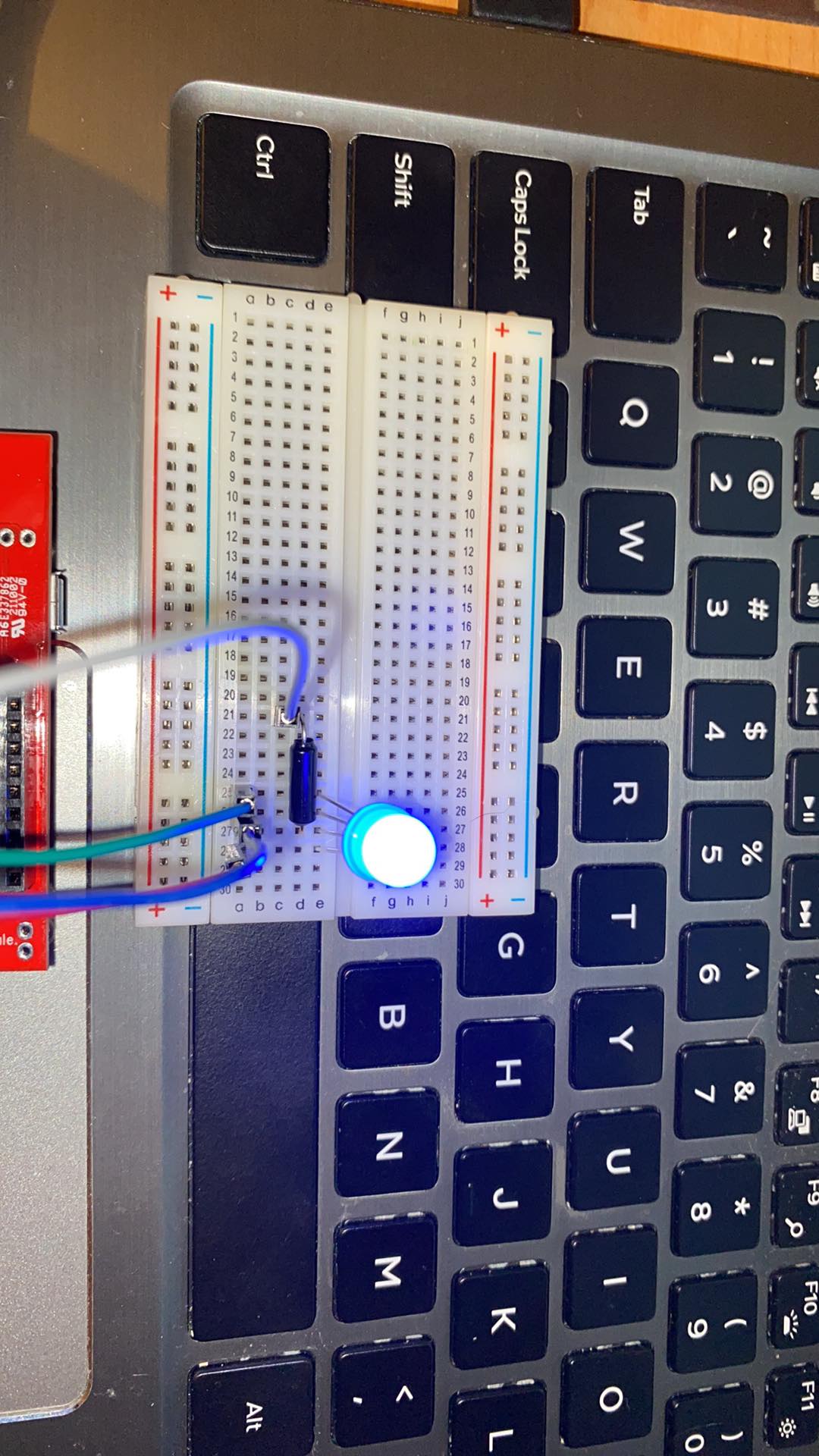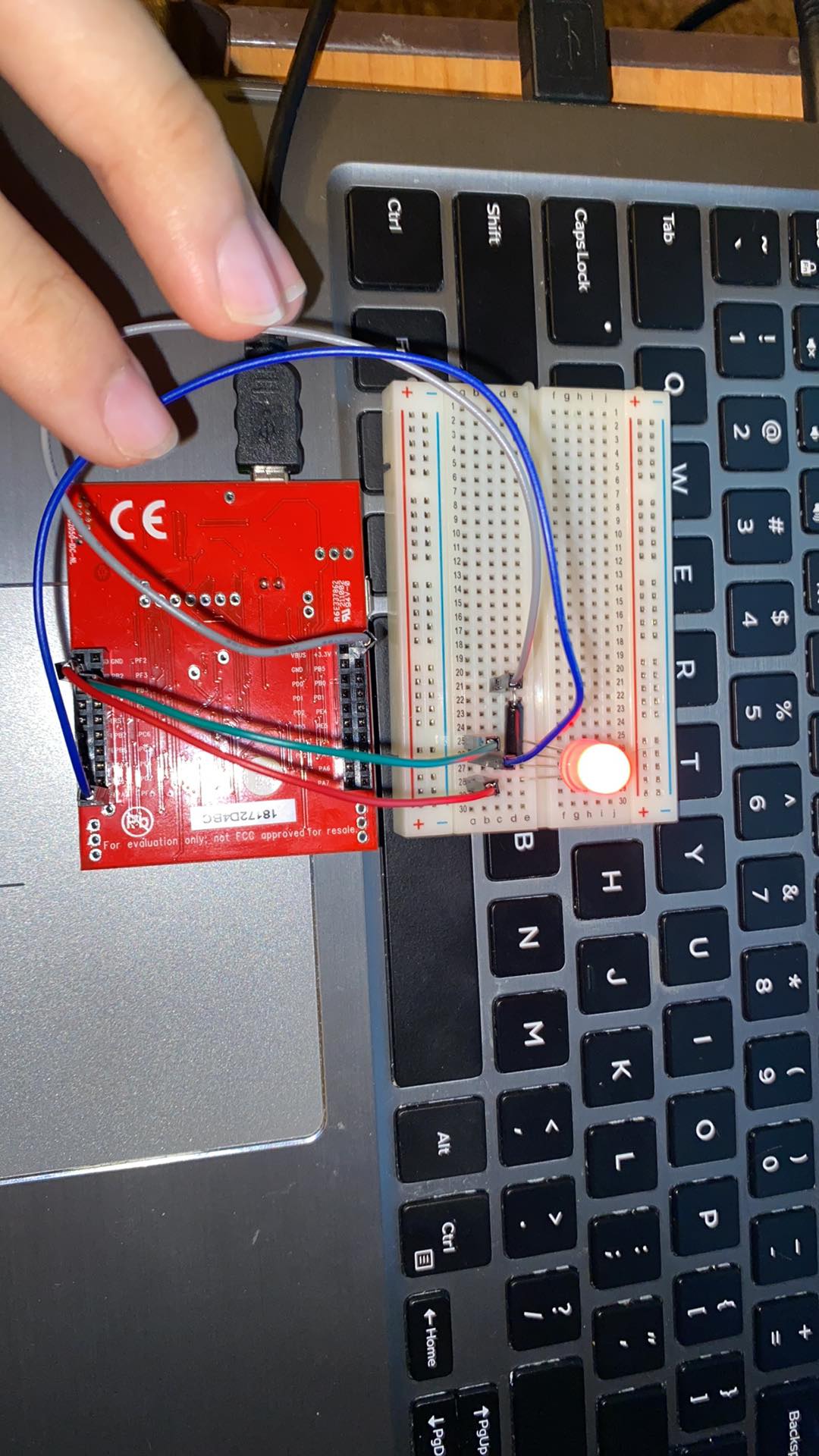Entry 1 ~ Desperate times call for desperate measures, and in the midst of an apocalypse, two brave electrical engineers decided to come together and provide light for the community. They can't meet face to face due to social distancing, however the wonders of modern technology have made it possible for them to meet and cooperate over the web. We, Alonzo Diaz and Oland Carter, are here to tell you our story of bringing light to a dark world. Welcome to the SHOW
Two electric entrepreneurs meet for the first time to develop their startup. The idea, the hardware, the code, everything comes into shape, and they do all this---over Zoom.
Entry 2 ~ The two engineers, one more technical than the other, gather to finish off the project that they have started. It's now up to the group to assemble their board, write the code, and get the LED's fading like clockwork. Here we have detailed a little bit of the process with some pictures of Alonzo managing to get the LED to change colors. Enjoy!
Entry 3 ~ We have finished! Alonzo has gotten the project to work and cycles through all of the colors we chose in the next video!
This project was a wild ride and we had lots of fun collaborating in a neat class. Although the class is coming to an end soon and this is our last lab, our bond and love for the electrical engineering arts will not disappear anytime soon. Thank you for the opportunity to showcase our sick skills--AD and OC out













_3u05Tpwasz.png?auto=compress%2Cformat&w=40&h=40&fit=fillmax&bg=fff&dpr=2)

Comments
Please log in or sign up to comment.